Key takeaways:
- Ethical decision-making in surgery requires balancing personal values with patient needs, emphasizing empathy and compassion.
- Common dilemmas include respecting patient autonomy while ensuring understanding of risks, and navigating resource allocation during critical situations.
- Strategies such as open dialogue, patient-centered care, and reflecting on personal biases enhance ethical decision-making processes.
- Building a supportive framework through collaboration, clear guidelines, and emotional intelligence fosters better ethical outcomes in surgical practice.
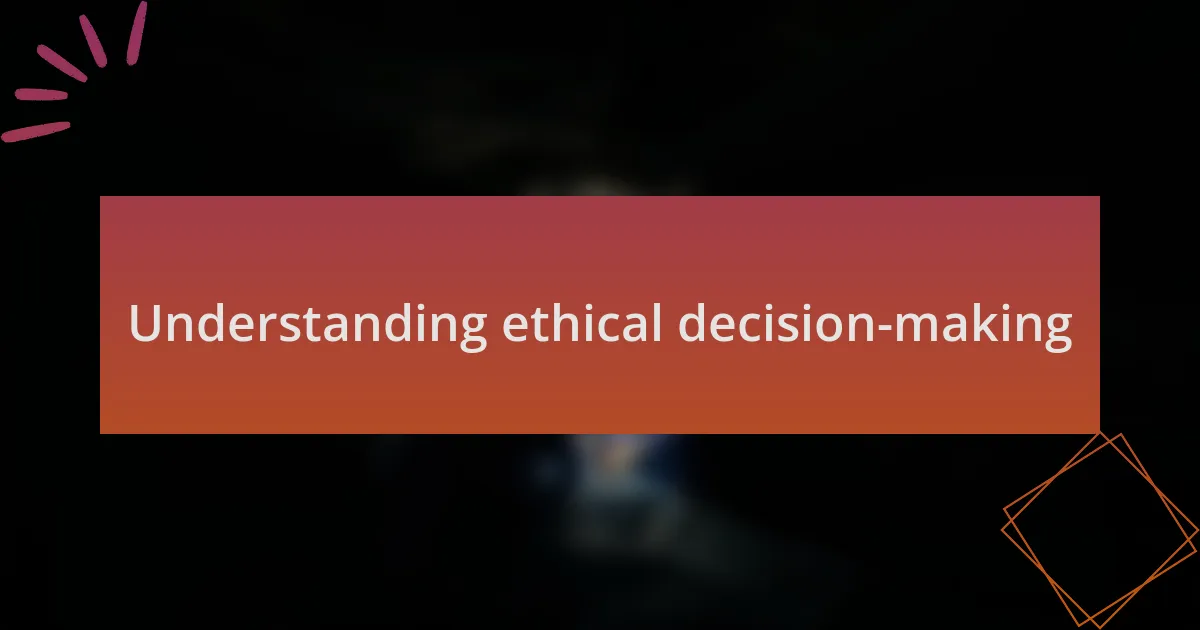
Understanding ethical decision-making
Ethical decision-making is a complex process that requires us to balance our personal values with the greater good. I remember a situation during my training when I had to decide whether to report a colleague for unethical behavior. That moment was filled with anxiety—was I prioritizing professionalism over camaraderie?
At the heart of ethical decision-making lies empathy, allowing us to see beyond our own experiences. I often find myself reflecting on how my choices impact patients and their families. When faced with difficult decisions, I ask myself: What would I want if I were in their shoes? This introspection helps ensure my decisions align with compassionate care.
Moreover, ethical dilemmas often emerge in gray areas where clear answers are elusive. I vividly recall a case where the potential benefits of a new surgical technique were promising, yet untested. The pressures to innovate can be intense, but I learned to weigh those against the ethical obligation to do no harm. How do we remain steadfast in our commitment to ethics when the allure of advancement is so strong? It’s a question I continue to explore in my practice.
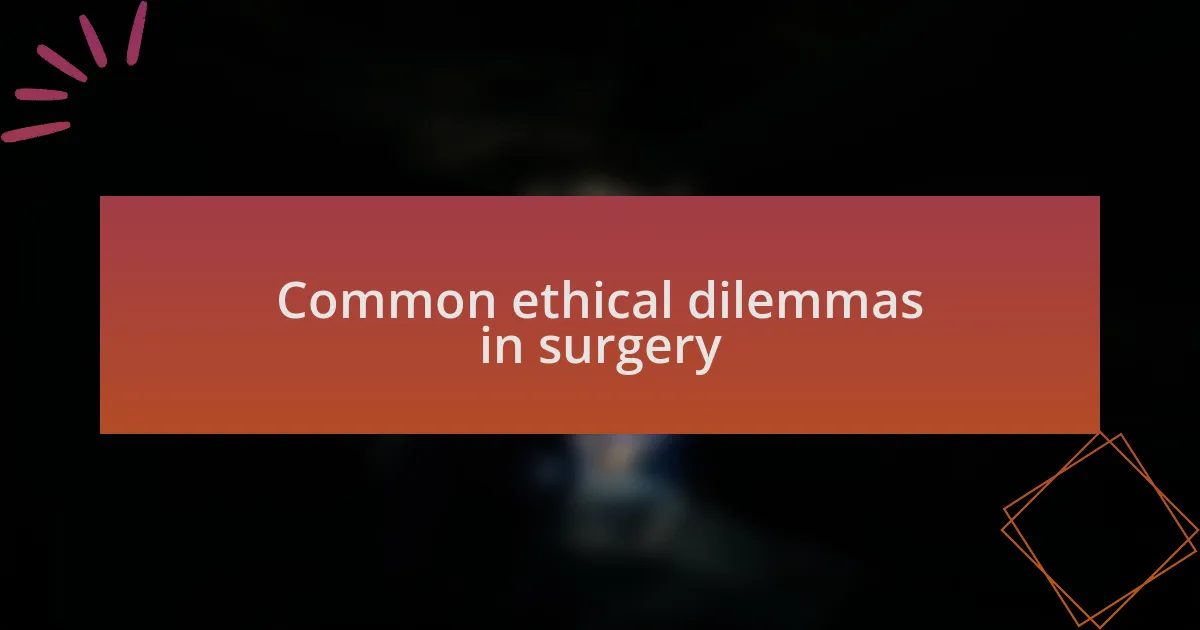
Common ethical dilemmas in surgery
Navigating common ethical dilemmas in surgery often means facing tough choices that can have far-reaching consequences. For instance, I’ve encountered situations where a patient requested a procedure that I believed would not significantly improve their quality of life. It’s a delicate balance—how do we respect a patient’s autonomy while also ensuring they understand the potential risks and limited benefits?
In another instance, I was involved in discussions about resource allocation during a particularly challenging period. Limited surgical resources meant that we had to prioritize certain cases over others, which led to intense ethical debates among the surgical team. It made me question—how do we assign value to each life? This scenario not only highlighted the complexity of systemic issues in healthcare but also tested my own moral compass.
Additionally, the topic of informed consent often presents a gray area in surgical practice. I remember a case where a patient was under significant emotional distress, making it difficult for them to fully grasp the details of the procedure. It raised a pressing question for me: Are we truly obtaining informed consent if the patient cannot engage with the information provided? This dilemma underscored the need for compassionate communication, ensuring that patients feel both supported and informed in their decisions.
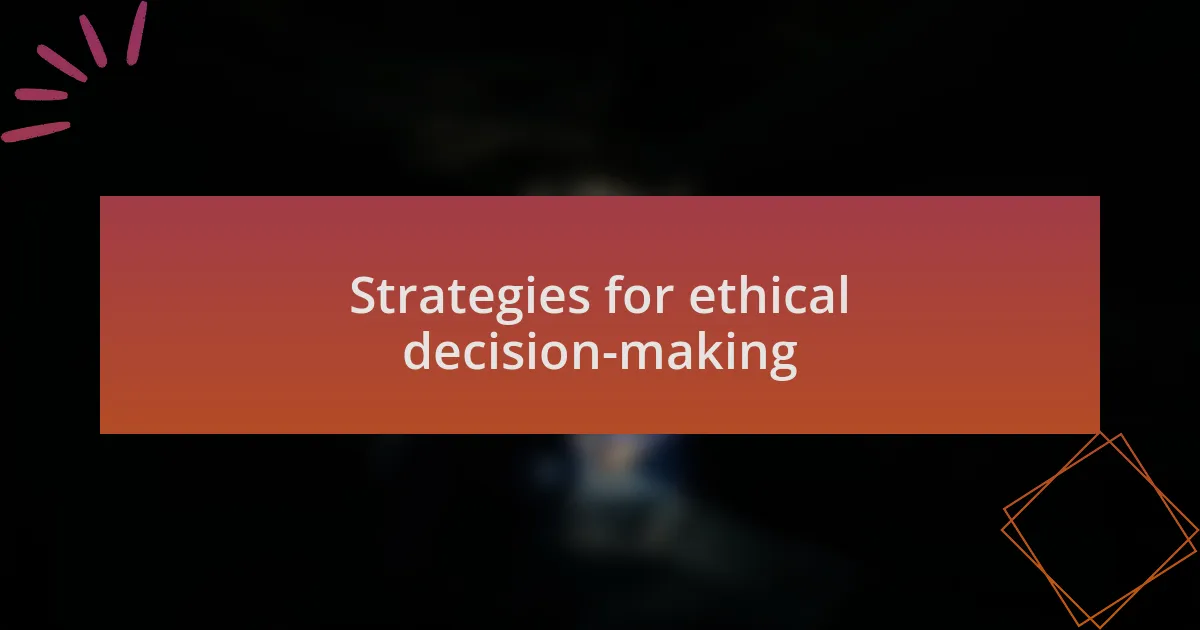
Strategies for ethical decision-making
When faced with ethical decisions in surgery, I’ve found that employing a structured approach can be incredibly helpful. One strategy I often use is to engage in open dialogue with my surgical team. For instance, during a particularly complex case, we held an ethical round table to discuss the implications of our options, which fostered diverse perspectives and led to a more robust decision-making process. Isn’t it fascinating how collaboration can illuminate nuances we might otherwise overlook?
Another vital strategy is prioritizing patient-centered care, which has its own challenges. I remember a time when a patient’s cultural beliefs clashed with the medical recommendations. By taking the time to understand their values and involving them in discussions about their care, I realized I wasn’t just aiding in their treatment; I was building trust. How else can we ensure that our decisions respect their beliefs while still providing the best possible care?
Lastly, I make it a point to reflect on my own biases and preconceived notions. After a challenging surgical decision, I often journal about my feelings and experiences. This practice has helped me recognize where my instincts might cloud my judgment. Have you ever considered how your own experiences shape your ethical decisions? By actively reflecting on my motivations, I’ve developed a greater awareness of how they impact my choices in high-stakes situations.
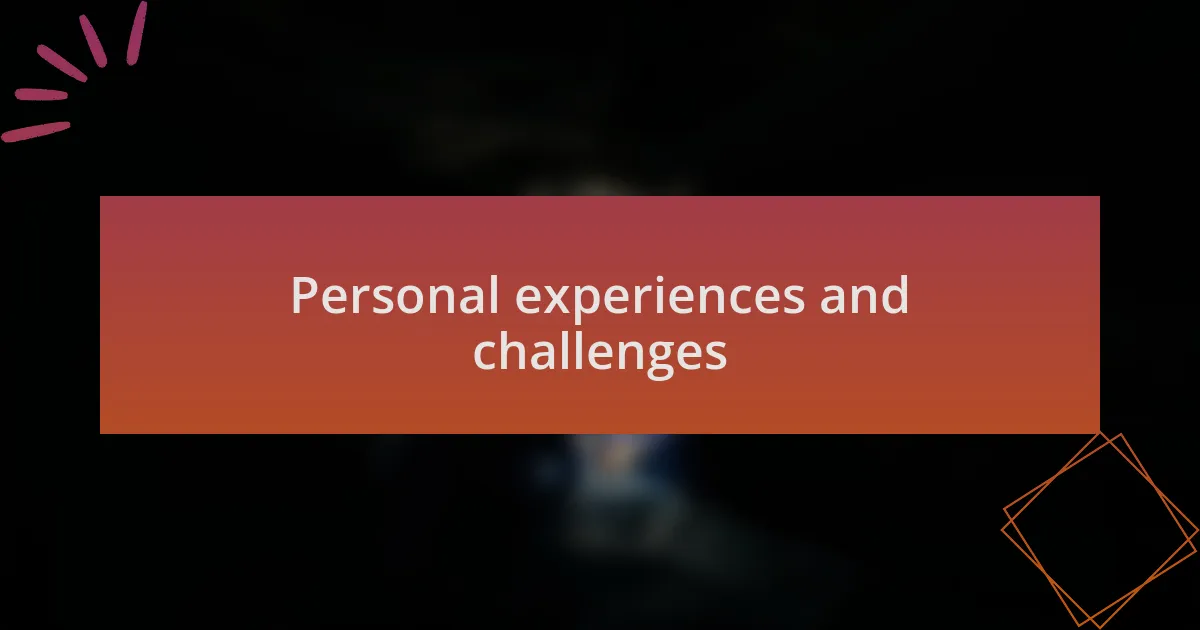
Personal experiences and challenges
I recall a time when I had to navigate a particularly difficult ethical dilemma concerning a young patient who required an urgent surgical intervention. The family was distraught and divided on whether to proceed, each with their own emotional struggles. Being present with them, listening to their fears, and understanding their hopes shaped my approach. It made me question: how can we offer our expertise while also honoring the needs and emotions of those we serve?
Another challenge I faced involved a situation where I felt pressure from a senior surgeon to take a less conventional route in a decision-making process. I was torn between respecting their authority and standing firm in my belief about what’s right for the patient. In that moment, I learned the importance of having the courage to voice my concerns, even when the stakes feel high. Has there ever been a time for you when adhering to your ethical compass felt daunting?
I also encountered ethical challenges stemming from limited resources during a particularly demanding outreach program. We had to decide who would receive care when not everyone could be accommodated. This brought forth deeper conversations within our team about fairness and equity. I was moved by how my colleagues rallied around these discussions, and it struck me that amidst the challenges, our collective sense of purpose and integrity guided our decisions. Reflecting on these experiences, I often ask myself: how can we find balance amid resource constraints while remaining committed to ethical principles?
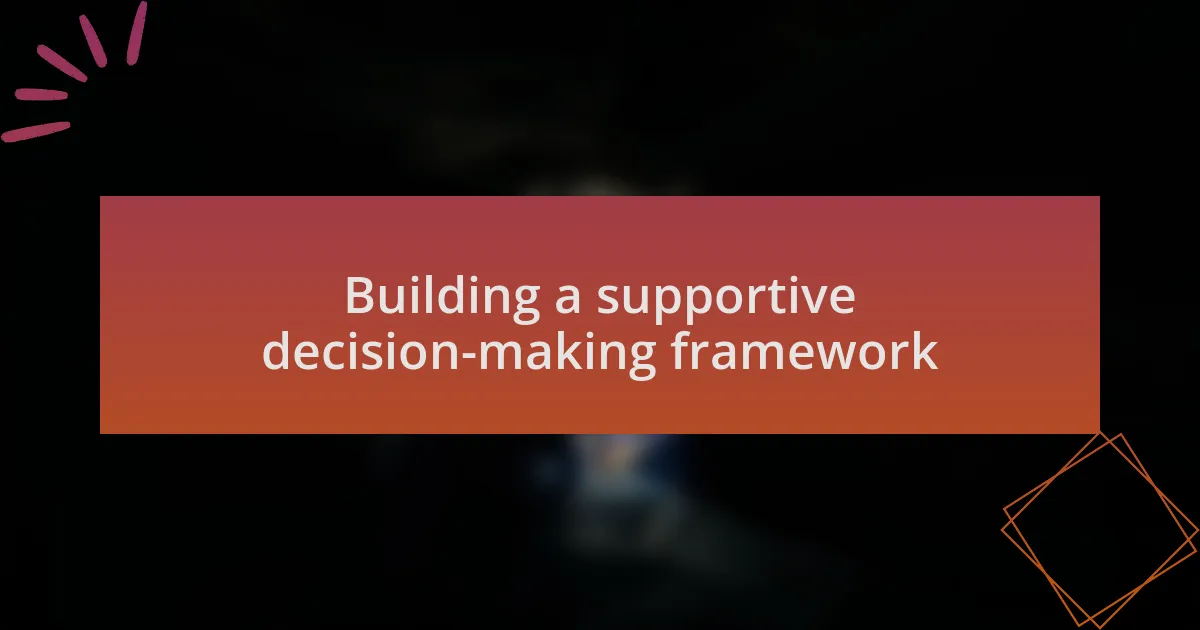
Building a supportive decision-making framework
When I think about building a supportive decision-making framework, I remember the collaborative discussions we had during a particularly intense surgical meeting. We created an environment where everyone felt empowered to voice their thoughts and concerns, which ultimately led to a more comprehensive evaluation of our options. Have you ever felt the power of collective input when making a tough choice? It’s remarkable how diverse perspectives can illuminate paths that might not be immediately visible.
I also found that developing clear guidelines helped us navigate ethical choices more efficiently. After a challenging case where team opinions clashed, we decided to establish a set of principles that would guide our decisions — a ‘code of ethics’, if you will. This not only brought clarity but also fostered a sense of unity and purpose. How reassuring is it to have a shared framework to rely on, especially in high-pressure environments?
To support a decision-making framework, it’s crucial to cultivate emotional intelligence among team members. I remember mentoring a surgical resident who initially struggled with decision-making under pressure. By encouraging her to not only rely on clinical data but also consider the emotional context of each situation, I witnessed a transformation in her approach. How often do we pause to consider the emotional weight of our decisions? It’s incredible how empathy can enhance our ethical decision-making processes.